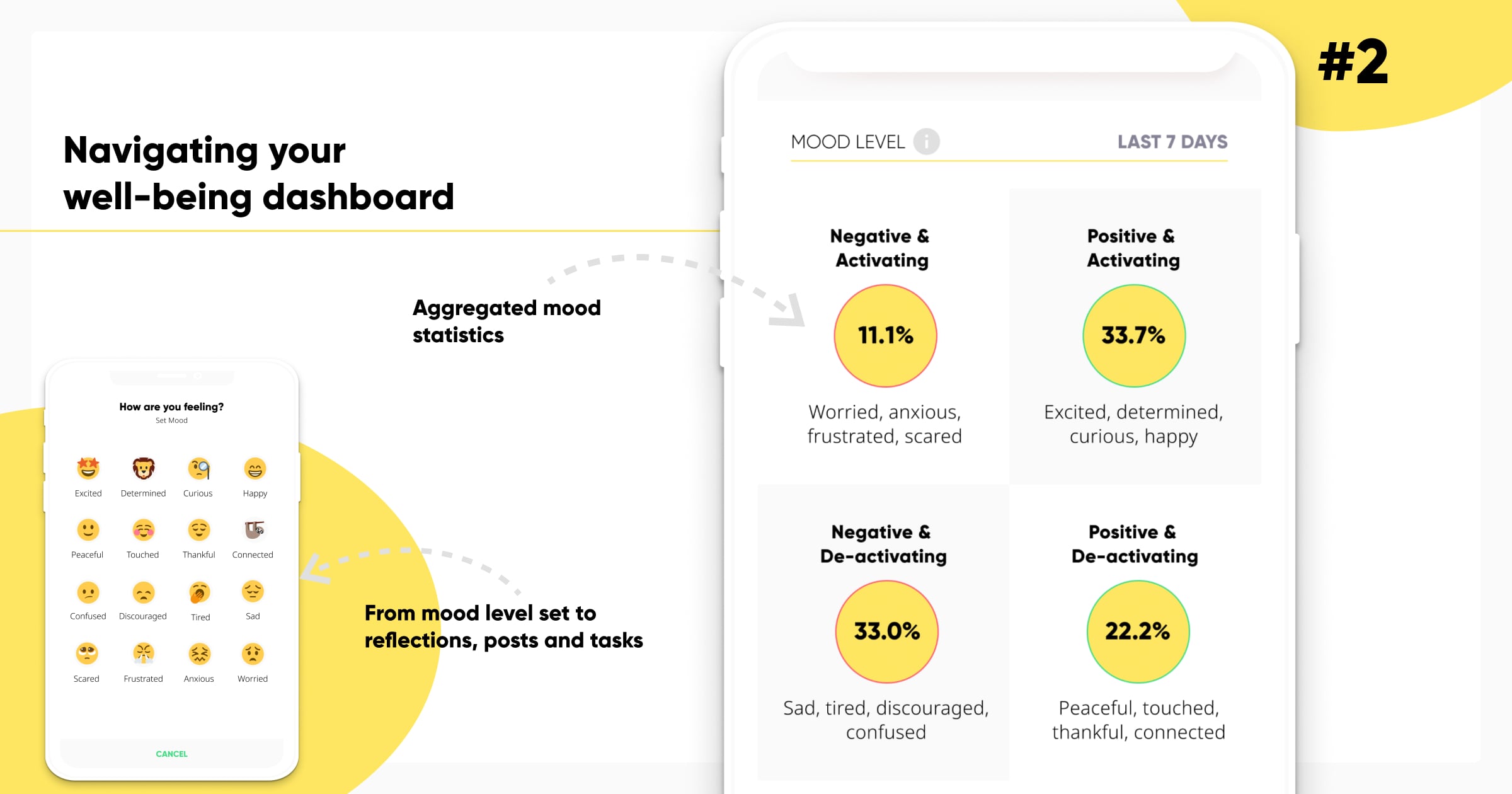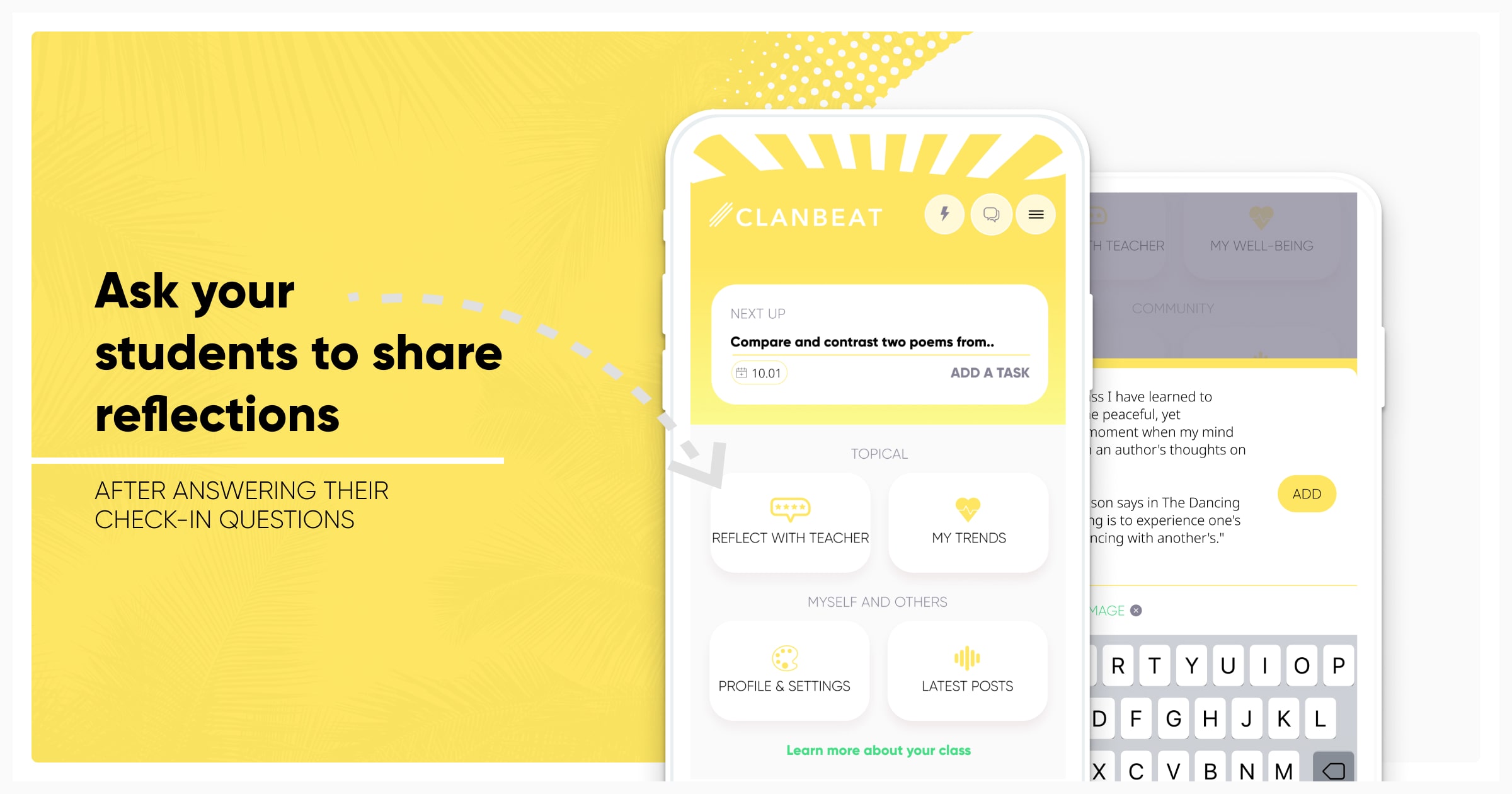Preparing Yourself for Students Well-being in Times of Crisis

As a teacher, it’s important to anticipate your students’ well-being, particularly in these times of crisis. In this guide, we’ll look at how good communication with students is directly linked to students’ well-being. By following these practical points, you can improve your communication with students and ultimately make their schooling environment a safer, more positive place to learn in.
Help Improve Students Well-Being with Good Communication
When it comes to improving students’ well-being, good communication is a key factor. Having open and good communication with your students increases trust and fortifies your relationships with them. This also creates a nurturing environment where students feel secure, and safe enough to share emotions.
To improve your communication with students, try active listening, asking open-ended questions and giving positive feedback for good communication. Activities that involve teamwork are also good for building communication skills.
With Clanbeat, you as a teacher can pose reflective questions via the app, encouraging your students to share their thoughts and emotions. What’s more, you can safely, securely and privately via the chat functions.
Teach Students to Have Strong Emotions
Being able to deal with strong emotions is a skill that will enhance any students’ well-being in times of crisis. Students must learn to recognise strong emotions and manage their response to them rather than bottle them away. As a teacher, it’s important to acknowledge and empathize with a student’s strong emotions.
That’s why Clanbeat created the well-being check-ins that allow you to easily monitor your students’ well-being. Working together to try to identify where the feeling is coming from and suggest some deep breathing exercises. Expressing strong emotions will improve students’ well-being and help to develop interpersonal relationships.

Has your Student’s Work Quality Changed?
If the quality of a student’s work has suddenly changed, this could indicate a wider problem with their well-being. This is a time when having good communication with students really comes in handy. If you find that students work has suddenly deteriorated, take the time to talk with them and try to get to know their world a little better.
Allow Students to Have a Voice
When we talk about good communication with students, we must remember their voices too! If a student feels like they can’t express themselves then this can be detrimental to their learning, life and well-being.
When students have a voice, they feel recognized as individuals and more involved and included. It also gives them a sense of individuality and independence which aids their development and well-being. Give your students a voice by listening to them – whether in person or digitally – and getting to know them better.
Activities for developing student voices include group discussion, presentations and allowing creative expression. Asking students for feedback and reflections on tasks and school life also allows them to have their voices heard.
Allow Students to Make Choices
Similarly to giving students a voice, making choices not only enhances students’ well-being but it also helps them learn. When students make choices, they’re more engaged with learning because it’s more interactive and they can shape their experiences.
Making decisions lets students express themselves, it improves their confidence and encourages them to be more independent. You can give students a choice by letting them select their learning topics or tasks, work groups, or learning media. By giving students a choice, you’re acknowledging that you’ve heard their voice.
Clanbeat was built together with teachers, students, school leaders and education experts. One area for us to really focus in on was enabling students’ autonomy over their life and learning. That’s why in Clanbeat we’ve created tools such as planner and the Q&A feed which not only give students the ability to manage their work but share their thoughts, questions and reflections.
Allow Students to Have Positive Breaks
It’s proven that regular, short breaks can increase productivity, reduce stress and improve a students’ social skills. The perfect time to give students a break is when they’re starting to look distracted, bored or unfocused. Using exercises such as stretching during a break, stimulates blood flow and oxygen, refreshing body and brain.
Breaks can be as simple as getting the class to all change places. You could also dance to a song, play a small game, or have art or journal time. Having regular breaks in the classroom improves students’ well-being and also strengthens student/teacher relationships.

Journals with Positive and Negative Thoughts
Not only is keeping a journal good writing practice, but it’s also good for a student’s well-being. Keeping a journal that focuses on positive and negative emotions helps students to recognize different types of thoughts and feeling. Whether it be pen and paper or in a safe and secure place online, it teaches students not to dismiss negative emotions. Instead, they learn to recognise and ultimately accept negative emotions via a healthy output.
Models of Self Care
Self-care teaches students to adopt healthy behaviors regarding their hygiene, nutrition, lifestyle and environment. Having a model of self-care to follow will give students a sense of control, self-respect and fulfillment. This can be particularly grounding in these times of crisis.
Good communication with students is needed when it comes to helping them build models of self-care. Help them to identify supportive people in their lives and how to respond in a stressful situation. Encourage students to practice uplifting, stress-reducing activities of their preference. This could be dancing, art, practicing a favourite hobby or spending time in nature. Include aspects of self-care in your lesson plans such as lessons in healthy eating and keeping good hygiene.
As a teacher, you can have a huge positive impact on your students’ well-being. In these times of crisis, it’s important to use this influence in the classroom. By focusing on the points above, you can improve your communication with students and, in turn, their welfare.
Clanbeat’s app enables students everywhere to take the lead in their life and learning by focusing on their self-development and well-being. From teachers easily recognising students’ needs with actionable insights to students building autonomy, resilience and reflection habits. Clanbeat’s app provides a scientifically-backed solution to today’s toughest classroom challenges.
Built on the premise of harnessing technology for the greater good, Clanbeat not only makes well-being in schools manageable but also guides students to become lifelong learners. To put it simply, we’re providing a classroom toolkit that’s helping shape future generations of happier and healthier humans.
Our unique approach to encourage social and emotional development has been passionately co-created with education experts, teachers, students, leading scientists and tech enthusiasts.
Not sure how to improve the communication with your students? We’re here to discuss! Reach out to us at hello@clanbeat.com
More materials
Nothing found.
